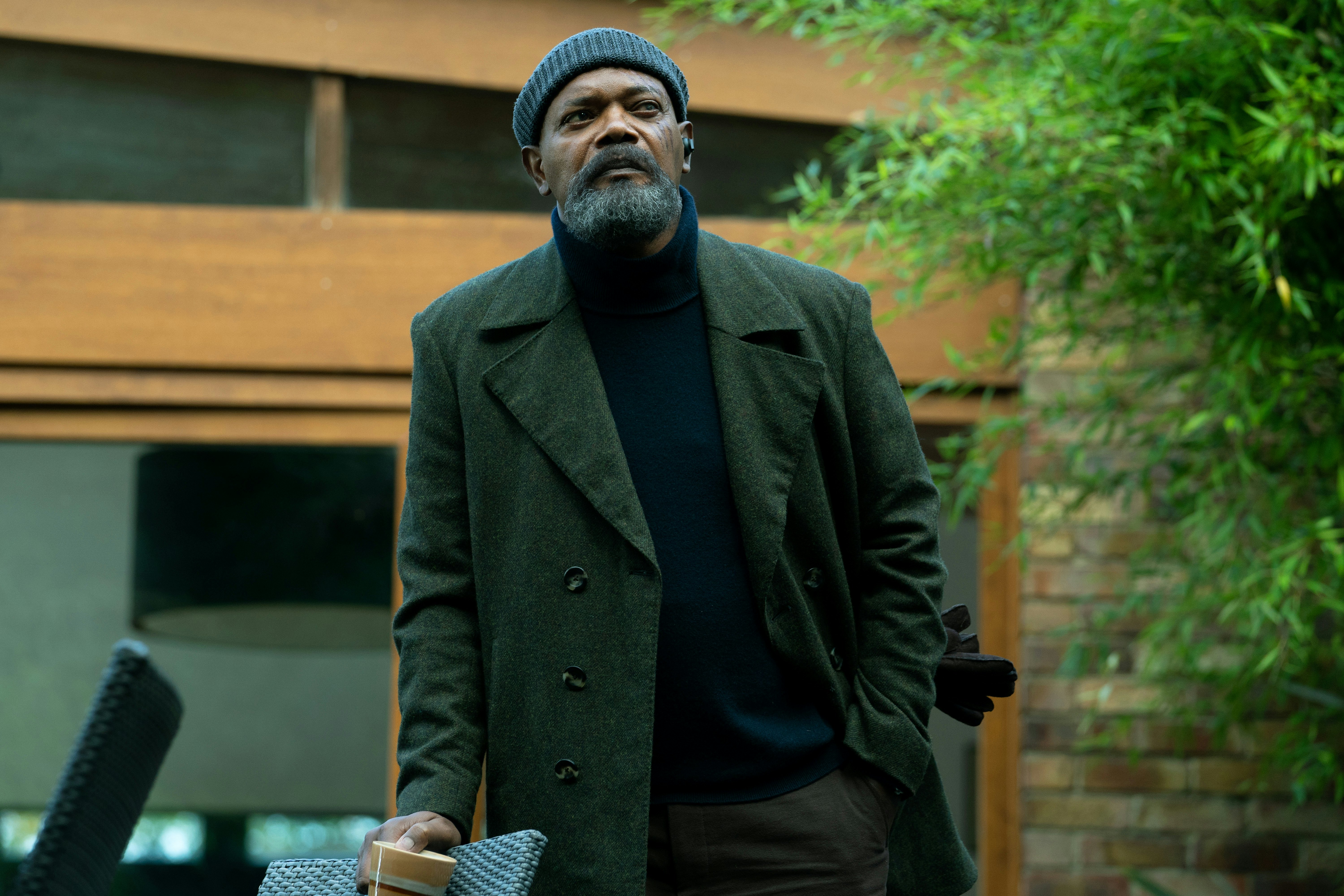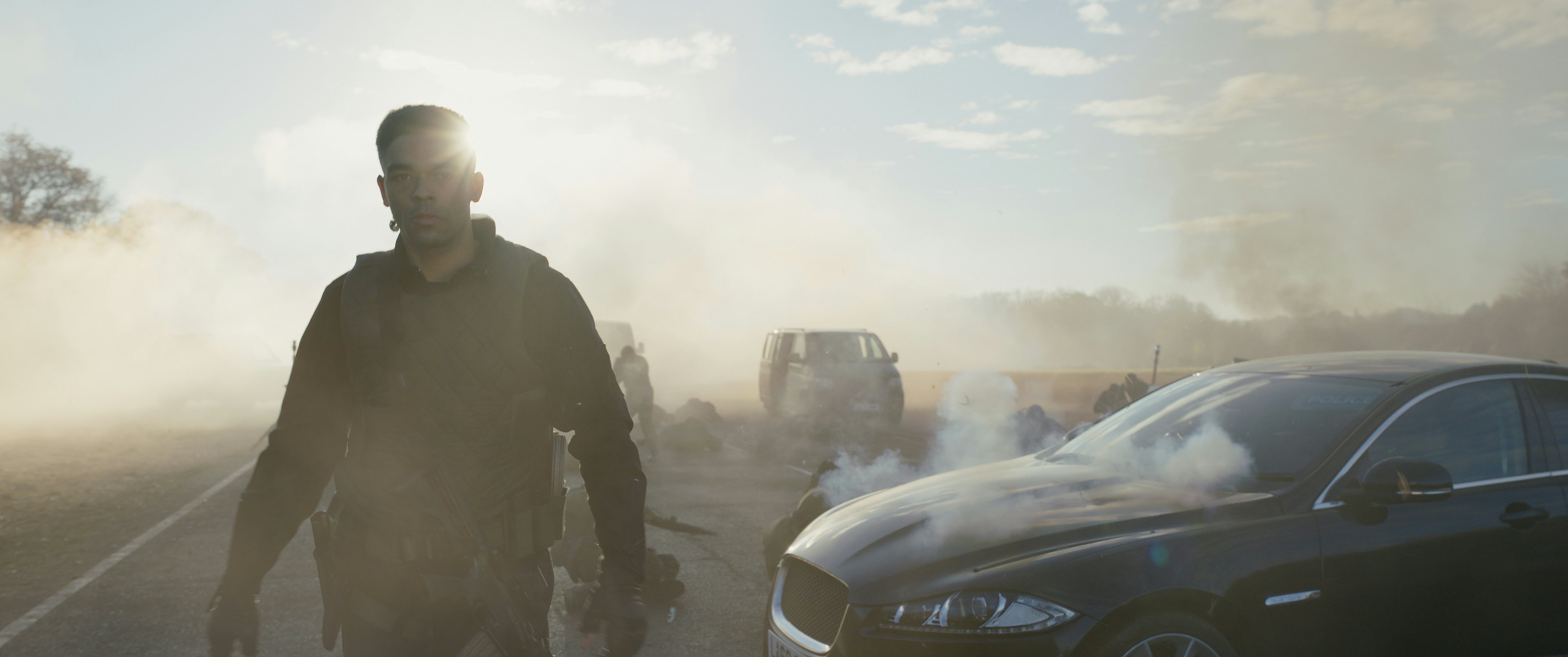
Secret Invasion Episode 4 is the show’s biggest and messiest installment to date. Picking up where its predecessor left off, the episode, titled “Beloved,” immediately undoes the death of G'iah (Emilia Clarke) by revealing she’d turned herself into a Super Skrull with healing capabilities prior to her confrontation with Gravik (Kingsley Ben-Adir). From there, Secret Invasion follows Nick Fury (Samuel L. Jackson) as he and his wife, Varra (Charlayne Woodard), finally discuss all their resentment and guilt, all while Talos (Ben Mendelsohn) struggles to convince G’iah of his plans for his fellow Skrulls.
The episode’s plot threads come to a head in its final sequence, which sees Fury and Talos thwart an attempt by Gravik and his men to assassinate President Ritson (Dermot Mulroney). In the same scene, Gravik seemingly kills Talos in front of Nick Fury, which makes “Betrayed” the second consecutive episode of Secret Invasion to end with a potential fake-out death. If that fact doesn’t illustrate the show’s overwhelming messiness, nothing will. This is a series that, for all of its strengths, insists on operating at a pace that doesn’t suit the needs of its story or characters.

Secret Invasion has been moving at an alarmingly fast pace ever since it began. Its premiere’s disorienting opening sequence not only lays the groundwork for the show’s central invasion, but it also ends with the on-screen death of a Marvel Cinematic Universe character, Everett Ross (Martin Freeman), who may or may not have secretly been a Skrull all along. In that same episode, Secret Invasion retroactively rewrites Nick Fury’s post-Avengers: Endgame journey and kills off one of the MCU’s oldest heroes, Maria Hill (Cobie Smulders).
Now, in its fourth episode, Secret Invasion has undone a major death, staged a potentially world-ending attack on the President of the United States, and seemingly killed off yet another one of its few pre-existing MCU characters. To the credit of the show’s creative team, these decisions all have a clear purpose, which is to make the stakes of its story feel real. Unfortunately, that’s the one thing Secret Invasion hasn’t been able to do. And that’s not because it’s been unafraid to take risks, either.
Ultimately, it’s hard to believe in the conflict at the center of Secret Invasion when so many of its plot beats and characters feel thinly realized. Viewers haven’t gotten to spend enough time with characters like Gravik, G’iah, Talos, or Varra to care about their motivations and actions. Beyond that, the series’ various Skrull twists have done nothing but raise questions that Secret Invasion hasn’t taken the time to fully explain.
Is Everett Ross still alive? Or was he always a Skrull? What about Rhodey (Don Cheadle), who’s acting so out of character now that it’s astonishing no one other than Nick Fury has become suspicious of him? Additionally, now that we know the Skrulls don’t need their human counterparts to stay alive (as Priscilla’s backstory confirms), why are Gravik and his men even bothering to keep the humans they impersonate alive? Why would they care about doing that, especially given the threat that any potential escapes could pose to their mission?

Secret Invasion hasn’t offered satisfying answers to any of those mysteries, which has made watching it more of a mystifying experience than anything else. On a broader scale, the series has become a useful key to decoding many of the flaws that have recently come to define the MCU. Over the past few years, Marvel has struggled to communicate a level of cohesion and focus that audiences had previously come to expect from the studio. Its best post-Endgame titles have all, unsurprisingly, been those that have focused largely on specific characters (WandaVision, Loki, Shang-Chi, Black Widow).
The films and TV shows that have prioritized their plots and twists haven’t been as successful. Watching Secret Invasion now, it’s not hard to see why. It’s a TV show that desperately needs to slow down. It can’t actually do that, though, because it is, in the end, just one cog on a machine that similarly refuses to lower its speed or change its course.







